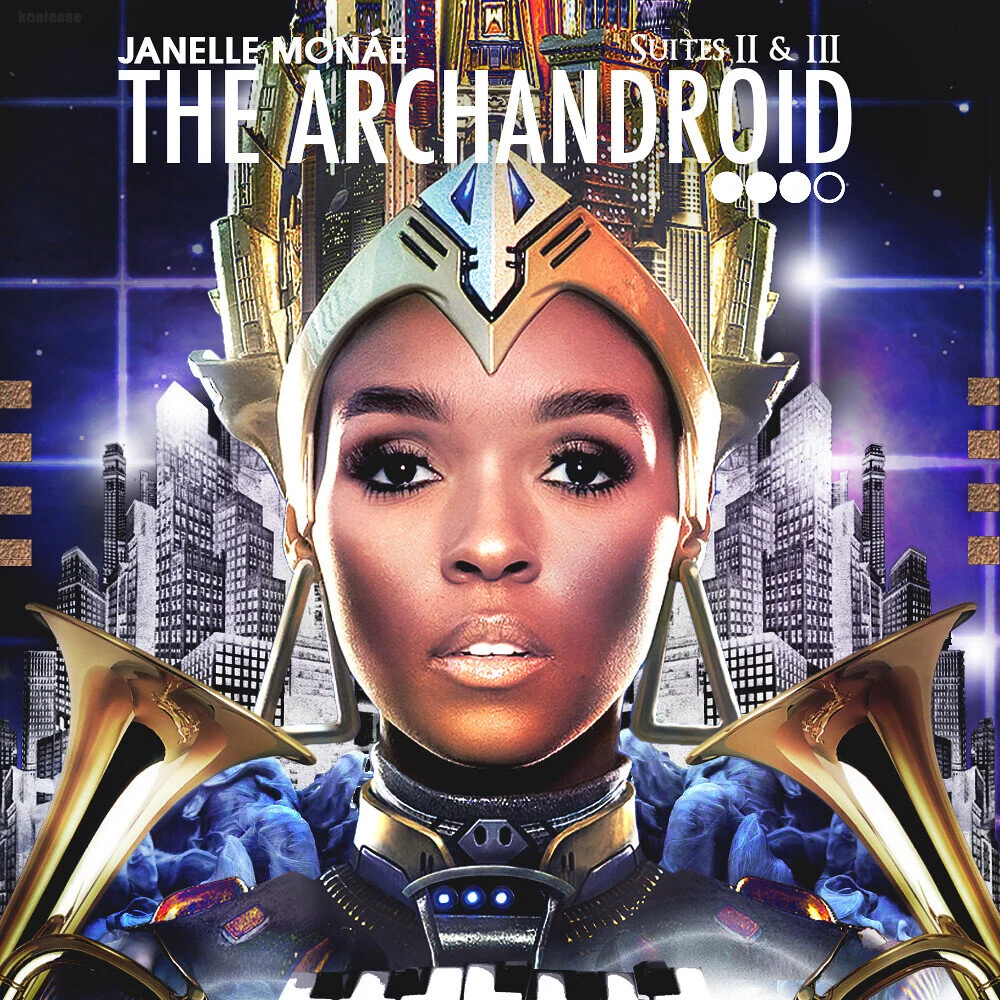REVIEW (Music): THE ARCHANDROID
READING TIME: 5 MINUTES
Last decade mainstream radio succumbed to short length tracks, mind-numbing lyrics, insipid beats and manufactured vocals. But there are projects that are exception to the rule. Monae’s refreshing LP debut offered meaningful world music (underground) to the public. Moreover, its magic isn’t fully appreciated unless the listener sits down, uninterrupted and listens with full awareness. This is because it’s an unexpected but worthy journey, especially the power that overcomes you in its first listen.
One unique aspect The ArchAndroid discusses is human’s discovery for love, relationships and dependence on familiarity. Ironically, today human have become attached to something devoid of emotion and unfamiliarity: technology. And since technology has created our world to feel smaller, and minority groups are becoming more recognised, we are assumed to be coming together and blending at an increasing rate. However, technology's achilles heel is that it has made society feel so lonely, despite the fact that the human race is currently the most connected and busiest times in recorded history.
Monae mirrors the analogy of globalisation by successfully blending together a myriad of genres that stem from all over the world from funk, hip hop, jazz, psychedelia and orchestra. This avant-garde-fusion-piece’s album run also acts as a cinematic score; it could be said that the project is aimed at storytelling a superhero (the protagonist), which in this case makes the record in itself unique. It is evident The ArchAndroid takes on various inspirations like Prince, Zapp and Roger, Annie Lennox, Andre 3000 and Ceelo, and Monae has sonically and conceptually crafted her own idiosyncratic style using the aforementioned as her inspirations.
Although Monae didn’t intend for the album to be solely centred around sci-fi or Afrofuturism, once getting past this aesthetic the album’s other concepts are also thrilling, thought-provoking, imaginative and abstract. Also, most of the songs have no formal pop structure and feels disjointed at times - sort of reflecting on the idea that humans require a sense of individualism in order to thrive and survive in the world. The record’s protagonist can be understood to wanting to overcome slavery, war and discrimination and individuals should be more self-reflective, eventually becoming proud of their origins.
The 1-2-3 punch of cocaine-fuelled 'Dance or Die', ‘Faster' and 'Locked Inside' containing explosive light percussion stabs, bouncy guitar-riffs and isolated triangle beats mimic an eccentricity and a rambling stream of consciousness of one's thoughts, which want to stand out in a busy world where you’ll be silenced by being drowned out by all of humanity's noise. Suite IIs entrance is immediately thrown at the listener so its sound and message can’t be ignored. Once overcoming the twists and turns finally arriving to 'Mushrooms & Roses', Suite IIIs tracks ‘Wondaland', ‘57821' and 'Say You’ll Go' are lengthier, more theatrical and ethereal. And the floral harmonies and dainty piano and string chords are brought to the forefront to convey a message that every type of song (or [robotic] person in the world) belongs - they have its equal right and place to be where they are (on this record).
Excerpt 1: Suite II Overture
Excerpt 2: Come Alive (War of the Roses)
Excerpt 3: Mushrooms & Roses






